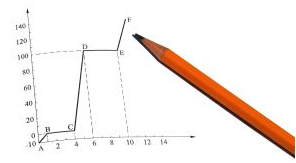Interest Rates and Inflation
by Victoria Miu The central bank of China has been combating surging inflation, which recorded an 11-year high of 6.5% last month. The inflation has contributed not only to the erosion of purchasing power, but also to negative real interest rates in China. Recall that
The central bank of China has been combating surging inflation, which recorded an 11-year high of 6.5% last month. The inflation has contributed not only to the erosion of purchasing power, but also to negative real interest rates in China. Recall thatReal Interest Rate = Nominal Interest Rate – Inflation Rate
While nominal interest rates are never negative, real interest rates will be negative if the inflation rate exceeds nominal interest rates.
Interest rates play a dual role in the economy. On the one hand, they determine the interest payments banks make to depositors; on the other, they determine the interest payments borrowers make to banks. Since the interest rate is the return on deposits, negative real interest rates imply a loss of purchasing power if people deposit money into banks. This will discourage people from saving and encourage them to withdraw their funds for current consumption and investment.
At the same time, negative real interest rates mean that the cost of borrowing is low or even negative. Because of this, negative real interest rates can boost aggregate demand, or total spending, and fuel a bubble in the stock market. As observed by Dong Zhixin of China Daily, low interest rates have played an important role in fueling the Chinese stock market, with people withdrawing or borrowing from banks to buy stocks.
In August, the People’s Bank of China raised nominal interest rates for the fourth time this year in an effort to cool the economy. This will boost real interest rates and raise the cost of borrowing at any given inflation rate. The higher cost of borrowing will hopefully curb excessive spending and ultimately reduce inflation.
Discussion Questions
1. Is it possible or even desirable for the Chinese government to fine-tune the real interest rate by adjusting the nominal interest rate? Why?
2. China's currency, the yuan, is fixed to the U.S. dollar within a narrow band in the foreign exchange market. What impact do rising interest rates in China have on the exchange rate?
Labels: Inflation, Interest Rate, Monetary Policy



0 Comments:
Post a Comment
<< Home